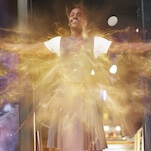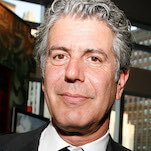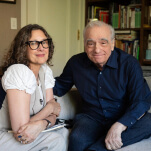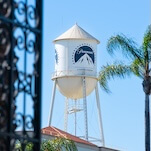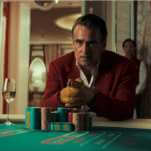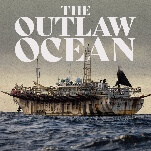An anecdote early in Peter Ames Carlin’s Paul McCartney: A Life tells the story of a young McCartney shaken down by a pair of teddy boys―street toughs in Edwardian dress―for a watch and some spare change. A few weeks later, he was testifying in court, demanding the return of what was rightfully his. Throughout A Life, Carlin reprises this story, holding it up to McCartney’s actions during the twilight of The Beatles, and again during the litigious ’70s, as a Rosetta stone for interpreting (and perhaps justifying) McCartney’s alleged song-credit grubbing. Carlin, a former People scribe and writer of a Brian Wilson biography, conducted two years’ worth of interviews, but he homes in on telling childhood details like this, scanning them for fresh insights on the rock legend. The interpretation works in part because Carlin makes such a compelling case for McCartney’s centrality in The Beatles’ mythos: where Philip Norman’s Shout posits John Lennon as the true innovator, and McCartney the more conventional pop-songsmith, Carlin spends a brisk 340 pages establishing McCartney as a natural PR man, a studio gear-head, and a business brain. Lennon, by contrast, is a necessary evil, a diet pill-popping hothead lacking McCartney’s natural curiosity and verve.
A Life isn’t content to just redraw property lines, however. In spite of Carlin’s conspiracy theory that Yoko Ono made a back-room deal with Michael Jackson for the Beatles catalog, Ono never develops into the mustache-twirling villain of popular interpretation. Instead, Carlin attributes the band’s breakup and subsequent money squabbles to Allen Klein, who stepped in as band manager following the death of Brian Epstein, and whose relations with McCartney were notoriously strained.
That said, McCartney doesn’t come away unscathed, and A Life never devolves into hagiography. The Horatio Alger story of McCartney’s rise from humble origins is filled with ugly self-promotion, and obsessive micro-management of musicians and love interests. Faults come into greater focus as early triumphs make way for disasters in the form of misconceived films, limp album sales, and McCartney’s complete inability to take criticism from anyone but John Lennon. As the public’s interest in the ex-Beatle wanes, the biography follows suit, churning out long lists of Wings tunes and capsule reviews that start to run together like Biblical genealogies. Also repetitive: the quotations that pad the years running up to John’s death. Certainly journalists could have been more creative in the questions they posed, but variation after variation on “we might re-form the band, but we might not” fills pages more than it fills in any blanks. Still, these are just minor hiccups in what’s otherwise a fleet, engrossing read. Following the shooting at the Dakota (and an appropriate number of paragraphs spent in mourning), A Life returns with gusto to the task of reining in Lennon’s legacy. But being a rock legend isn’t a zero-sum game, and when Carlin lets the air out of Lennon, McCartney is punctured too. The resulting freshly humanized mess reveals an icon whose instant fame hid many of the traits that made him brilliant and exasperating in equal measure.










